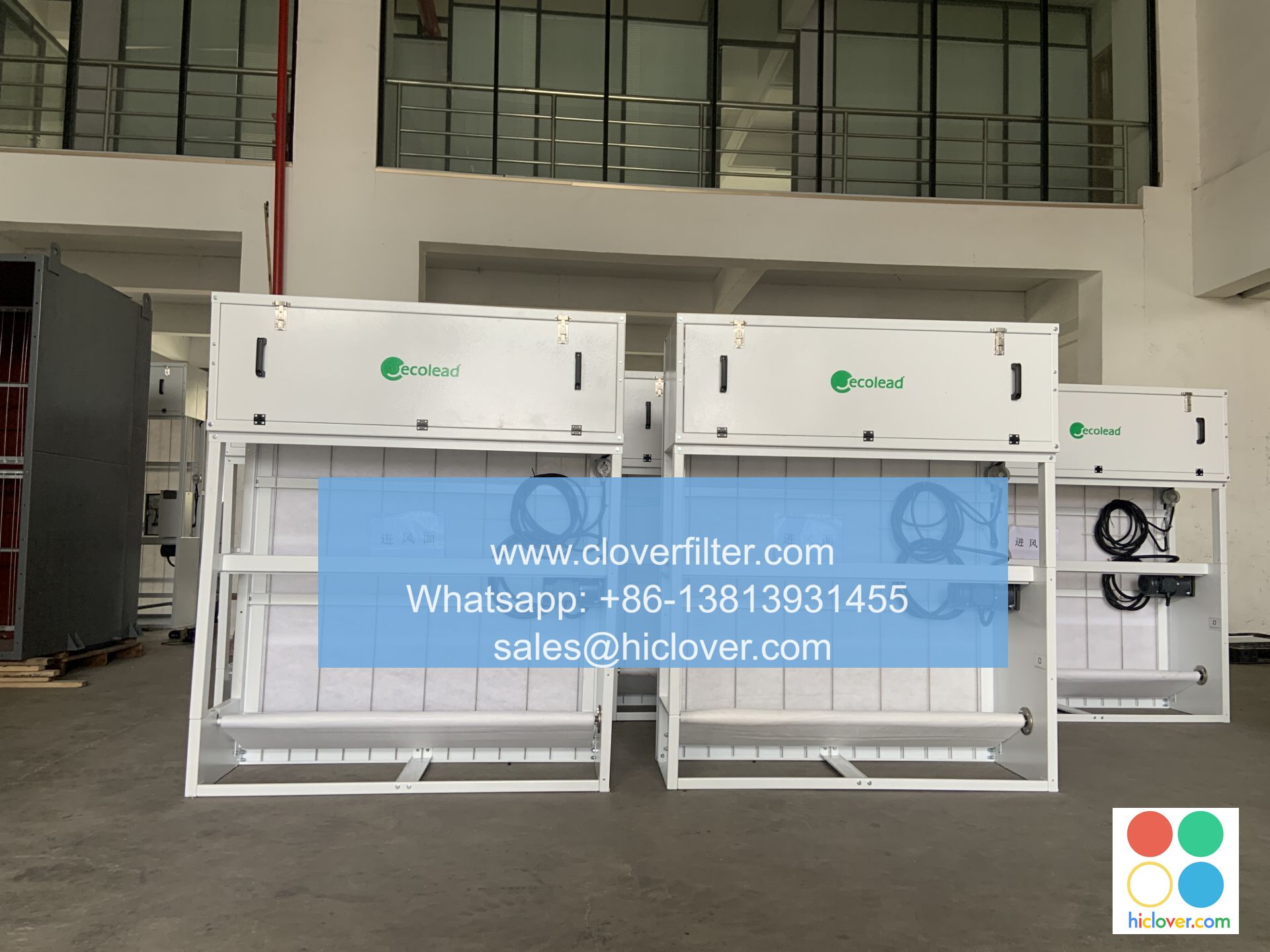Maximizing Efficiency in Food Processing with Automatic Roll Air Filters

The food processing industry is a complex and highly regulated sector that requires strict control over environmental conditions to ensure the quality and safety of products. One crucial aspect of food processing is air quality, as airborne contaminants can compromise the purity of food products and pose health risks to consumers. To address this challenge, food manufacturers are increasingly adopting automatic roll air filters, which offer a reliable and efficient solution for maintaining optimal air quality in processing environments.
Automatic roll air filters are designed to capture airborne particles, including dust, pollen, and microorganisms, that can contaminate food products. These filters are typically installed in HVAC systems or as standalone units in food processing areas, such as packaging, filling, and cooking zones. By continuously filtering the air, automatic roll air filters help to prevent the introduction of contaminants into the food processing environment, reducing the risk of product spoilage and ensuring compliance with food safety regulations.
One of the key benefits of automatic roll air filters is their ability to maximize efficiency in food processing operations. By minimizing downtime and reducing the need for manual filter changes, these filters enable food manufacturers to maintain continuous production schedules and optimize their workflows. Additionally, automatic roll air filters can help to reduce energy consumption and lower maintenance costs, as they are designed to operate with minimal pressure drop and require less frequent replacements compared to traditional air filters.
Another significant advantage of automatic roll air filters is their flexibility and adaptability to different food processing applications. These filters can be customized to meet the specific needs of various food products, such as dairy, meat, and bakery products, which require distinct air quality standards. Furthermore, automatic roll air filters can be easily integrated with existing HVAC systems or installed as part of a new air handling system, making them a versatile solution for food manufacturers with diverse processing requirements.
In addition to their technical benefits, automatic roll air filters also contribute to a safer and healthier work environment for food processing personnel. By removing airborne contaminants, these filters help to reduce the risk of respiratory problems and other health issues associated with poor air quality. Moreover, automatic roll air filters can assist food manufacturers in complying with occupational health and safety regulations, which is essential for maintaining a positive reputation and avoiding costly legal liabilities.
To ensure the optimal performance of automatic roll air filters, food manufacturers should consider several factors, including filter media selection, airflow rates, and maintenance schedules. The choice of filter media, for example, depends on the type of airborne contaminants present in the food processing environment and the desired level of filtration efficiency. Similarly, airflow rates and maintenance schedules should be carefully planned to prevent filter saturation and ensure the consistent removal of contaminants from the air.
In conclusion, automatic roll air filters are a valuable asset in food processing operations, offering a reliable and efficient solution for maintaining optimal air quality and maximizing efficiency. By minimizing downtime, reducing energy consumption, and promoting a safer work environment, these filters can help food manufacturers to optimize their workflows, reduce costs, and improve product quality. As the food processing industry continues to evolve and face new challenges, the adoption of automatic roll air filters is likely to become increasingly widespread, driving innovation and excellence in food production and processing.
Frequently Asked Questions (FAQs)
Q: What are the benefits of using automatic roll air filters in food processing?
A: Automatic roll air filters offer several benefits, including minimized downtime, reduced energy consumption, and improved air quality, which contribute to a safer and healthier work environment and optimized food processing operations.
Q: How do automatic roll air filters work?
A: Automatic roll air filters capture airborne particles, including dust, pollen, and microorganisms, using a continuous roll of filter media that is automatically advanced and replaced as needed.
Q: What factors should be considered when selecting automatic roll air filters for food processing applications?
A: Key factors to consider include filter media selection, airflow rates, and maintenance schedules, as well as the specific air quality requirements of the food product being processed and the existing HVAC system or air handling infrastructure.
Q: Can automatic roll air filters be customized to meet the specific needs of different food processing applications?
A: Yes, automatic roll air filters can be tailored to meet the distinct air quality standards of various food products, such as dairy, meat, and bakery products, and can be easily integrated with existing HVAC systems or installed as part of a new air handling system.

